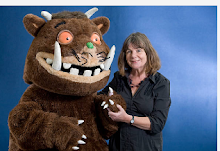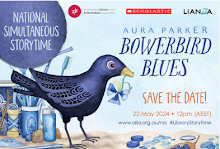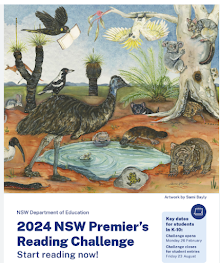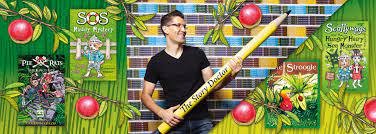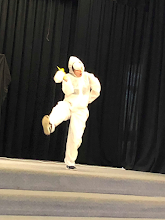It is
exciting to be back in the library this term with all Cromer students
enthusiastically borrowing and participating in the library lessons.
I encourage
all students to borrow regularly from the library collection which houses over
11,000 fiction and 4,000 non-fiction texts. I am sure there is something to interest
everyone!
Premier’s
Reading Challenge
I would like
to encourage all our Cromer students to participate in the Premier’s Reading Challenge. It will open on Monday February 26th and close on August
21st. We have an extensive range of PRC books in the library.
Follow the link above to learn all about Sami Bayly, who created the PRC poster.
The Library
Program Term One
Kindergarten
It is
important that our kindergarten students learn to love the library and experience
the joy of exploring new worlds in books. We encourage them to explore all areas
of the library and make personal discoveries of genres that interest them.
We begin our
library studies learning the difference between fiction and non-fiction books.
The pictures, words and elements of both genres and the reason for reading them
will be examined.
Teaching the
difference between fiction and nonfiction requires students to understand the
difference between real and make-believe. Large-group and small-group
activities will give the students practice in identifying the different types
of books.
Stage One
(Years One and Two)
In term one
the library program will be linked to the history unit that is to be studied in
class. It asks the question: How Are People Connected to Places?
In support
of this unit of study we will be deeply diving into five texts which illustrate
the importance of connection to country for Indigenous people.. The texts are:
Open Your
Heart to Country by
Jasmine Seymour.
Ceremony by Adam Goodes and Ellie Liang
Baby
Business by Jasmine
Seymour
Somebody’s
Land by Adam Goodes
and Ellie Liang.
Each text contains illustrations which appeal to the very young, while sharing a deeper message for older readers. They invite the reader to reflect on the importance of place to, not only Indigenous people, but everyone.
Stage Two
(Years Three and Four)
The stage two staff has asked me to focus on experiencing and understanding various forms of
poetry in our library lessons with a particular emphasis on the skills of inferring, summarising and making connections.
Poetry is a
form of expression. Writing it enables us to express our feelings and thoughts
on a subject and reading it encourages us to connect and find meaning in our
experiences.
Poetry can have a positive impact on the
social and emotional learning of children. It may offer them a new way of
thinking about issues and events in their lives.
The aim of
this unit is to explore the many devices used in poetry and to provide the
students with the opportunity to express themselves in a variety of poetic
forms.
Stage Three (Years
Five and Six)
The library unit
is aligned with the Science and Technology Unit which asks the question: Why
are the characteristics of materials important when designing and producing?
Investigations
will include:
Comprehension
tasks, an investigation task entitled Escape the Science Lab which sets
the students on an adventure exploring the properties of matter, and a research
assignment investigating materials used by Aboriginal and Torres Strait
Islander People as hunter, gatherers.
The unit
will culminate with a research task of a particular product and its properties,
origins and uses.



